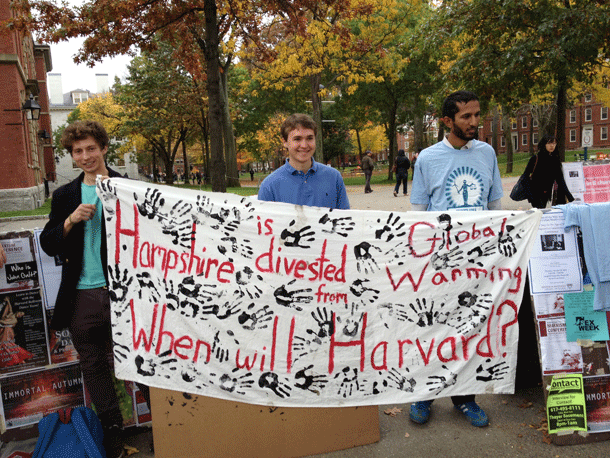Wednesday, January 16, 2013
Gun Violence: Lessons from South Africa
[The following piece is a guest blog that appeared on the Coalition to Stop Gun Violence website]
In 1994, perhaps one of the most remarkable events of the 20th century occurred. The former leader of the anti-apartheid movement, Nelson Mandela, who was held captive for 27 years, was elected prime minister of South Africa. This peaceful handover of power was achieved not on the battlefield as many had feared, but because the world had divested from South African companies.
This movement took time to grow and become mainstream, but grow it did, eventually going global. Picketing and demonstrations by student radicals on the campuses of the nations’ universities helped, but it was the attack on South Africa’s once vibrant white-dominated economy that really did the damage. In the 1980s, “between one-half and one-third of the S&P 500 did business in South Africa, placing these companies among the best investments at the time.” The amount of stock held by North American pension funds was minute compared to the size of these companies, but it was a game-changer when major colleges decided they could not morally stomach doing business with South Africa’s apartheid economy. By the end of the 1980s, “90 cities, 22 counties and 26 states [in the United States] had taken some form of economic stance against the South African government” and the divestment movement began to spread to other countries. Finally, the South African government got the message: “Continue to do business the same way and expect to be isolated as a pariah in the world community.”
Now think about the contemporary American experience with gun violence. With our political leaders continuing to fail to make such basic changes to the law as outlawing assault weapons or banning cop-killer bullets, the anti-apartheid movement should give us confidence that we can still affect change.
As Guardian reporter Brett Scott points out, “We’re used to the narrative of how weapons companies support lobby groups such as the National Rifle Association, but we're seldom encouraged to think about who funds the weapons companies themselves.” It’s us funding them, through our pension funds, as police officers, doctors, teachers, etc. Just as with the South African situation, the percentage of stock held individually by these funds in these companies is quite small, but collectively it is a significant stake. We, too, have the capability to send a powerful moral message that is clearly heard in boardrooms across America.
This kind of thinking is beginning to provoke some large-scale changes. Announcements from pension funds around the country suggest that teachers are finally exerting their long-neglected power. Shortly after the Newtown tragedy, the California State Teachers’ Retirement System (the largest educator-only pension fund in the world) announced that it would review its investments in the national and international firearms business, including the $600 million it had invested in the private equity firm Cerberus Capital Management, which owns a significant chunk of the gun industry.
Not coincidentally, on the same day Cerberus announced that it was divesting itself from its gun industry properties (Freedom Group International), including Bushmaster, the firm that manufactured the AR-15 rifle Adam Lanza used to kill 26 people at Sandy Hook Elementary School. Cerberus, however, has so far failed to act on its stock ownership of two of the largest gun manufacturers in the world Sturm, Ruger & Co. and Smith & Wesson Holding Corp.
The movement is gaining its legs. The California action seems to be moving the New York State Teachers’ Retirement System to review its stake in Sturm, Ruger & Co. and Olin Corp, which manufactures Winchester Arms. Other interested parties taking a close look at their investments include Rhode Island Employees' Retirement System in Providence; Connecticut Retirement Plans and Trust Funds in Hartford; and the $37.5 billion Illinois Teachers' Retirement System in Springfield. What we now need is a national divestment movement to include the billions of dollars that state and municipalities across the country invest in firearm and ammunition manufacturers.
Some pension fund managers will of course argue (as they have begun to do) that their role is not to decide the politics of the investments they make, but to simply serve fiduciaries. In other words, they claim their only mission is to ensure that members receive the highest return possible on their investments. But in a nation that suffers approximately 87 gun deaths per day, don’t they bear at least some level of responsibility for supporting the reckless marketing and sales practices of gun manufacturers? And even looking strictly at their financial argument, when bad publicity about gun manufacturers mounts following mass shootings tragedies like Newtown, these stocks are often highly volatile, and can create undisclosed legal liabilities.
If you want another way to circumvent the bought-and-paid-for politicians who have refused to listen to rational arguments, you now have another way to make your voice heard. Call your local pension fund. Tell them you want them to divest 100% from investments in firearms and ammunition manufacturers.
Working together, we can end the epidemic of gun violence in America. The divestment strategy worked in South Africa. It can work here, too.
EMAIL THIS
BLOGTHIS!
SHARE TO TWITTER
SHARE TO FACEBOOK
Labels:
disinvestment,
Gun violence,
Pension Funds,
South Africa
Subscribe to:
Comments (Atom)
